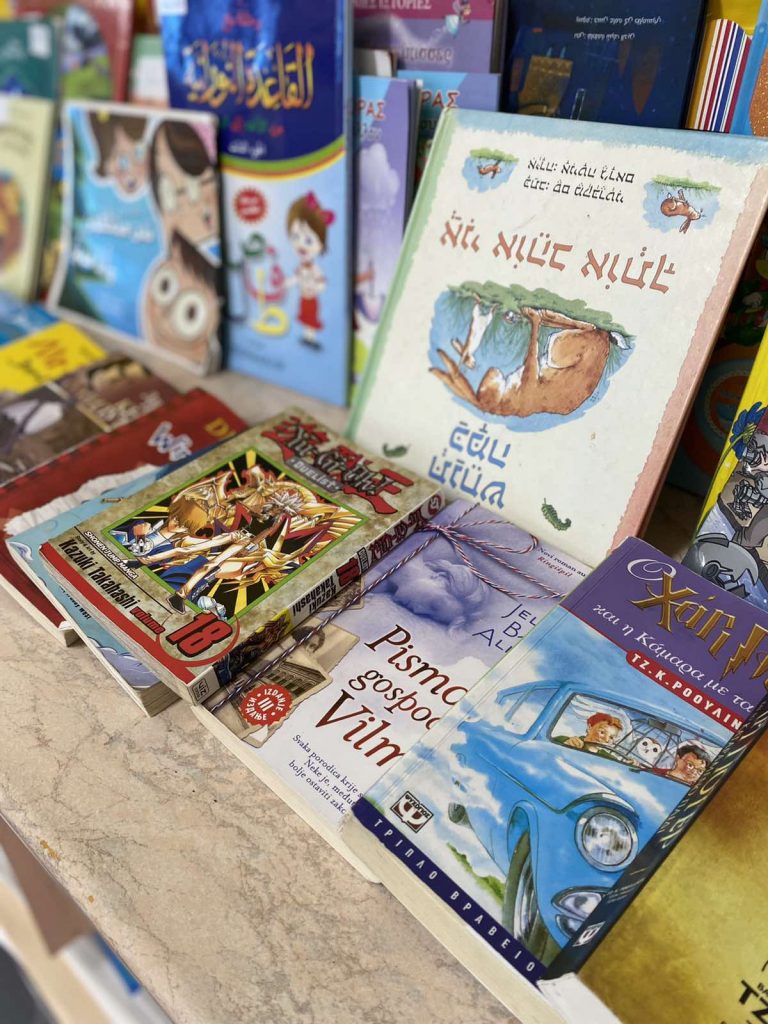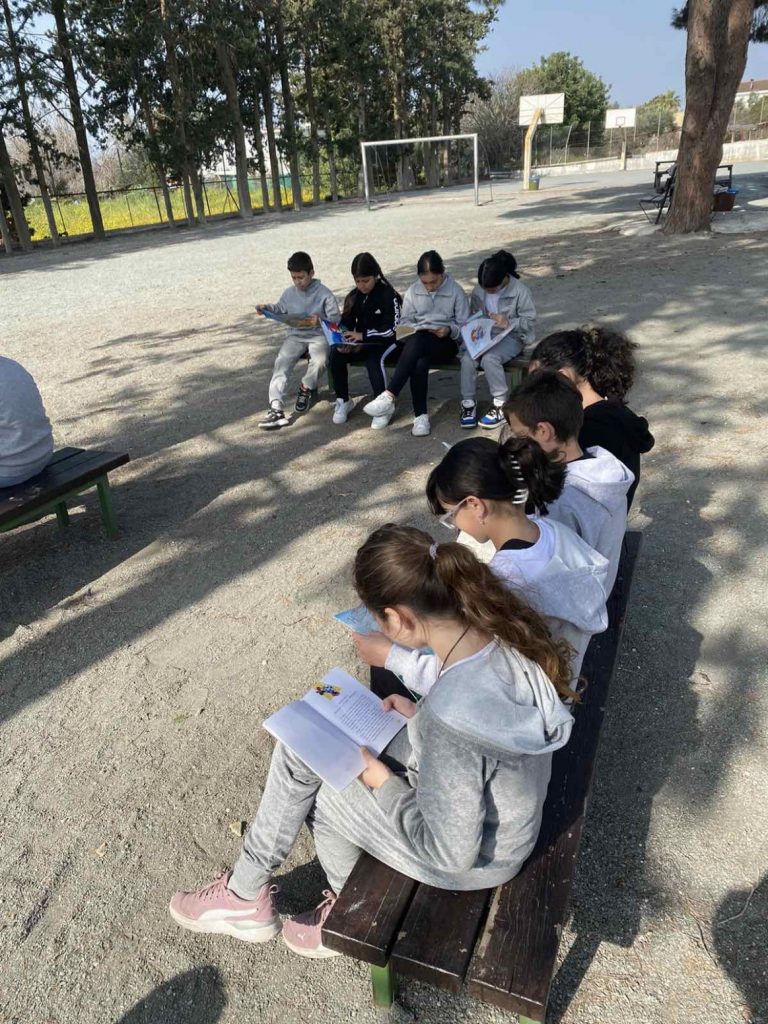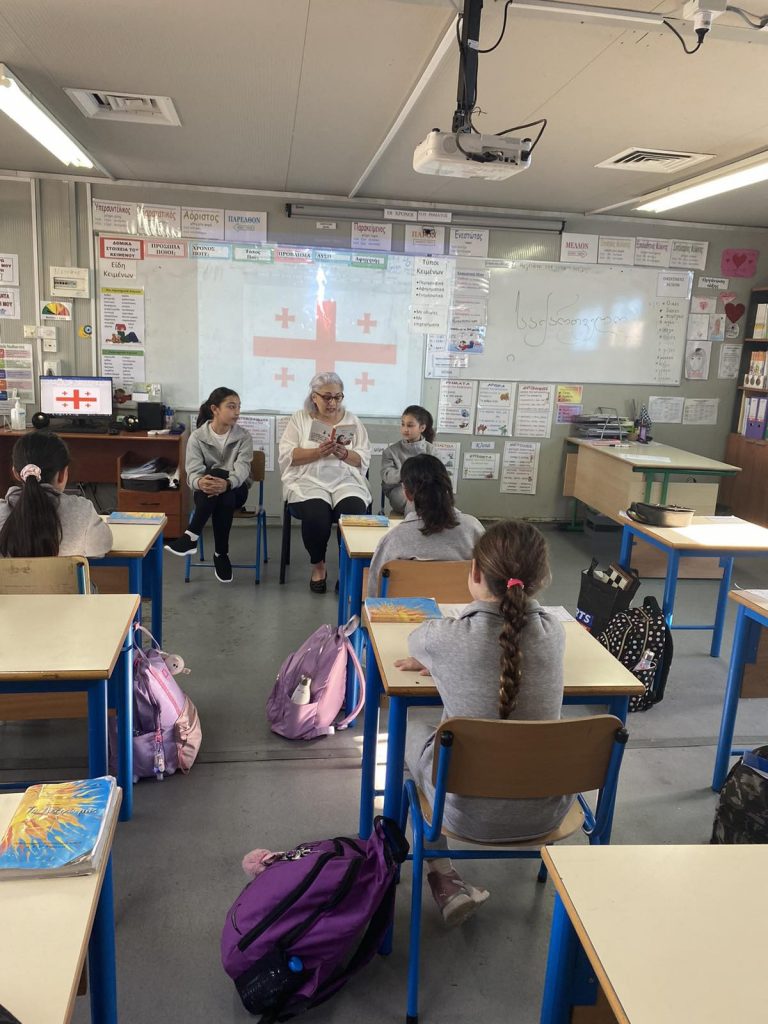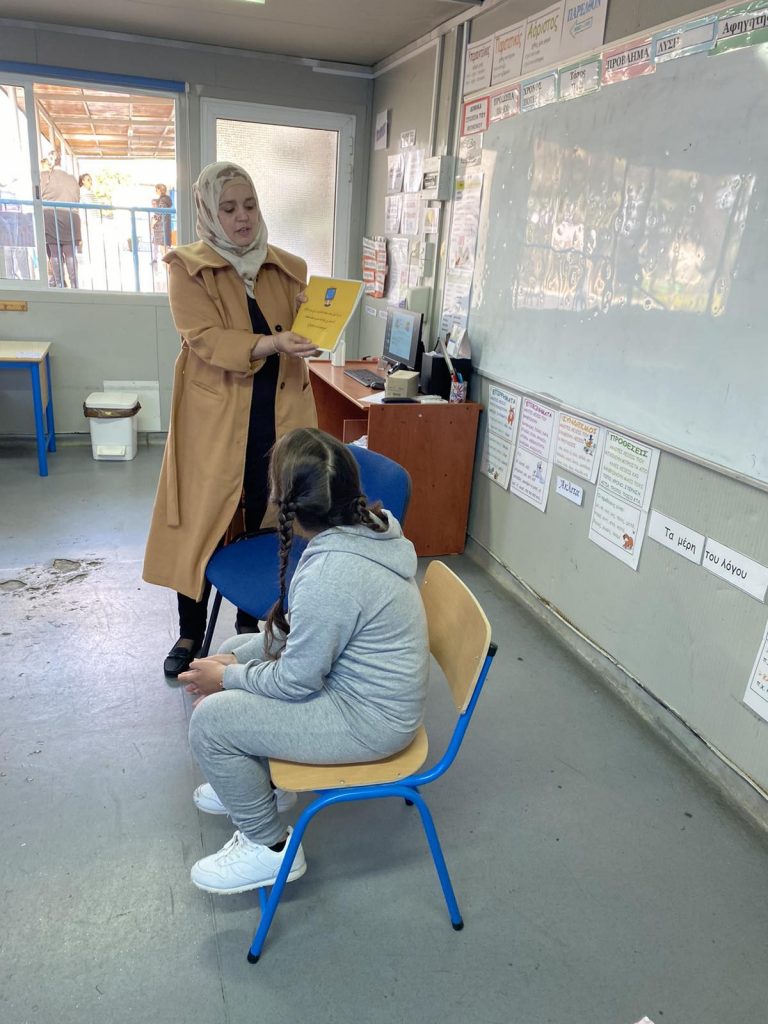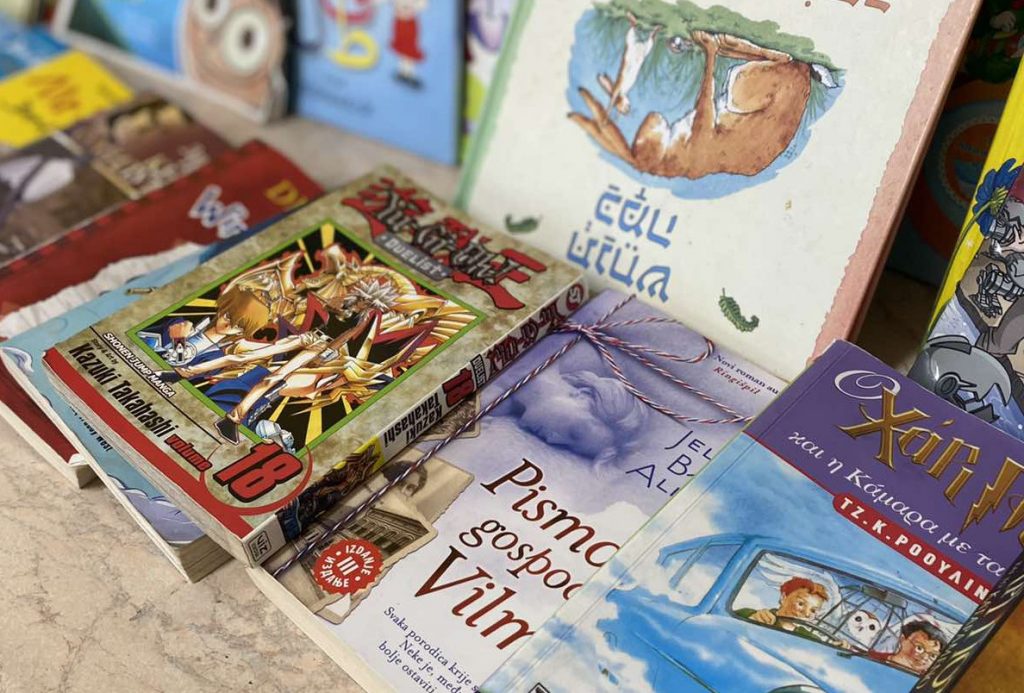
An Intercultural Library at the school
A simple yet powerful message left by a child in a classroom in the 5th-grade communication box in the Primary School of Tremithousa (Paphos), under the guidance of Ms Elina Gerosimou, -“Why do we only have books in Greek? Can we have books in other languages too?” ignited this extraordinary initiative of creating an Intercultural Library. A total number of 13 pupils and 9 parents participated in the activity, and although the action was piloted in the 5th grade, it will be expanded to all grades in the coming school year.
This initiative is part of the repilot experience in Cyprus facilitated by the NEW ABC partner SYNTHESIS Center for Research and Education has been fruitful and rich with more than 15 schools actively participating in the process of trying out, taking inspiration from, and transforming activities already suggested by the team of the University of Bologna. SYNTHESIS is continuously involving children, youth, and diverse stakeholders in various activities, “as we aim to create sustainable and innovative changes in mainstream education through our joint efforts supported by the NEW ABC project. Our mission is to address the unique challenges faced by these marginalized groups and promote inclusive policies at all levels” stated the SYNTHESIS representatives.
Taking the necessary support and inspiration from the activity suggested by the Italian teachers that piloted a similar activity in the first pilot phase, the creation of an Intercultural Library was now a reality! With a deep commitment to meeting the needs of every child, Ms Gerosimou and her pupils embarked on a transformative co-creation journey.
The involvement of the children’s parents played a pivotal role in fostering a strong cultural connection. Reading books provided an excellent opportunity to connect migrant children with their cultural heritage. Parents actively participated by selecting books that reflected their family’s background, traditions, and values. Through their participation in book-reading activities, parents not only shared their cultural knowledge but also helped their children develop a stronger sense of identity.
The parents became active multipliers of the action as they co-created with their children the content presented such that they contributed in various ways to enhance the cultural connection. They assisted with translation, ensuring that the stories and messages within the books were fully understood. They facilitated discussions, encouraging children to explore their thoughts and emotions related to the stories and their own cultural experiences. Furthermore, parents encouraged the expression of the mother language, allowing children to maintain a connection to their linguistic roots.
To bring the children’s cherished heritage to life, parents went beyond the pages of the books. They shared captivating videos of their homelands, showcasing the landscapes, traditions, and celebrations that make their culture unique and vibrant. They even utilized immersive technologies like Google Earth, virtually transporting the children to significant locations, landmarks, and historical sites in their ancestral countries.
Parents explained the reasons behind the journey to relocate to Cyprus that showed the unique experience of each family, of each child. Some of these quotes read as follows:
- “We came to Cyprus because of the war. I was pregnant with my daughter when the war broke out in Syria. We like it here, but if we had the opportunity, we would return. Our homes, neighborhoods, everything has been destroyed. We had to go somewhere where there is safety for us and our children.”
- “We came to Cyprus because wages in Georgia are very low. As a musician, I worked 36 hours a week and earned 100 euros per month. Moreover, universities are private, so my children couldn’t afford to study there…”
- “We came to Cyprus because we wanted our children to be free to play. In China, they go to school from 8:00 a.m. until 6:00 p.m. Then they have a lot of homework and additional classes at home, which takes about 2 hours. Sometimes they even have to stay overnight at school. We didn’t want that for our children.”
Through their active involvement, parents played an integral role in bridging the gap between their children’s new environment and their rich cultural heritage. By embracing book reading and utilizing various means of cultural expression, parents nurtured a deep appreciation for their roots, helping their children develop a profound sense of identity and connection to their heritage.
Through this collective effort, Ms Gerosimou’s class has achieved remarkable outcomes. By amplifying the voices of children and harnessing the power of literature, they embarked on an exploration of diverse cultures, languages, and customs. Their approach celebrates authenticity, avoiding stereotypes and idealizations. Instead, they foster genuine interactions that deepen understanding of migration, promote peaceful coexistence, and embrace acceptance and inclusion.
This initiative is a testament to the incredible impact we can make by prioritizing children’s voices and experiences. Through their vibrant narratives and the transformative power of literature, the children together with their parents and teachers embarked on a journey that celebrated diversity, nurtured empathy, and promoted inclusive education. Together, they can shape a future that embraces every child’s unique identity, fostering a world where equity, compassion, and empowerment thrive.
